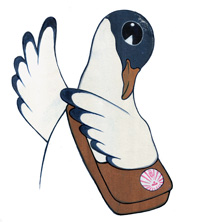 University of Calgary
University of Calgary
Program: Full-time and part-time (One to five years depending on program)
Advantages: Ahead of the curve. In its 20th year, this LL.M. is more relevant than ever. Focusing exclusively on natural resources, energy, and environmental law and policy, your degree can be thesis-based and orally defended or, as of last year, course-based and completed with a research paper. Want a less rigorous upgrade? A post-graduate certificate is pending government approval.
Disadvantages: No enviro tourists, please. The curriculum reflects the specialized nature of the LL.M., so environmental issues should be your passion and not just a passing interest. You should also not mind being away from the downtown core, as it takes fifteen minutes by train to get to campus.
Cost: $5,148 for thesis-based LL.M. $6,608 for course-based. General fees come to $928 and include health, dental, and transportation.
Insider tip: Stay up to date with Alberta law developments on the university’s blog: ablawg.ca.
Mascot: Rex the Dinosaur
 Kyushu University (Fukuoka, Japan)
Kyushu University (Fukuoka, Japan)
Program: Full-time (One year)
Advantages: Big Fish. The university was the first in Japan to initiate an LL.M. program taught entirely in English. You’ll study with students from over forty countries while completing a degree in International Economic and Business Law. Those wanting to explore the island after graduation can intern with a Japanese firm.
Disadvantages: Small(ish) pond. Kyushu is well established in Asia, but not as recognized in the West, which is something to keep in mind if you’re planning on returning to Canada after getting your LL.M.
Cost: Tuition is $8,200. Each year, 10 lucky students are completely supported by scholarships from the Japanese government.
Insider tip: Free Japanese lessons! The university’s International Center offers a range of courses from complete beginner to advanced learner.
Mascot: None, but Fukuoka’s town bird is the black-headed gull.
 Osgoode Hall
Osgoode Hall
Program: Professional Development Program, Part-time (Two years)
Advantages: Flexibility. Designed for working individuals and, in part, modeled after the executive MBA. Offering the country’s largest selection of part-time LL.M. degrees (eight specializations will begin this academic year, including Family Law and Constitutional Law), most degrees are available through distance learning. Intensive courses take place over three or four days in downtown Toronto, supplemented by weekly classes — a perk for those in the city.
Disadvantages: Choice requires patience. The LL.M. specializations are offered on a rotating basis (with the exception of Alternative Dispute Resolution, which is available every September) so you may have to wait two years or more if a specific LL.M. interests you.
Cost: $17,280 will cover your tuition, books, and materials, which can be sent to distance learners in Canada free of charge.
Insider tip: Don’t expect a return to Kraft Dinner. Evening classes come with a “light supper” and during an intensive class, breakfast, lunch and an afternoon snack are provided.
Mascot: Hootie the Owl.
 Oxford
Oxford
Program: Full-time (One year)
Advantages: Bespoke education. The Bachelor of Civil Law (BCL) and Magister Juris (MJur) — a masters level degree despite the name — qualifies you to enter the Masters of Philosophy in Law (MPhil), which is offered exclusively to BCL and MJur graduates. Want more VIP privileges? Tutorials with five students or less can be arranged directly with faculty.
Disadvantages: Customized education might be too individual. Direct from the website: “To the best of our knowledge, the only thing that a BCL or MJur degree may formally qualify you to do, if you do well enough, is to proceed to our MPhil in Law.”
Cost: Tuition is $22,100 for overseas BCL and MJur students, with an additional $25,600 for living expenses.
Insider tip: The university’s collegiate system places you under the same roof as students of varying disciplines, ages, and backgrounds, a social exercise that would make Big Brother proud.
Mascot: Each college has its own furry representative, including the Pink Pembroke Panther and the St. Peter’s Squirrel.
 University of Toronto
University of Toronto
Program: Full-time (One year)
Advantages: Security. Whether you’re taking a year off or planning to practise later on, earning your LL.M. just around the corner from Bay Street is a safe bet for future employment. Take advantage of the school’s many interdisciplinary research centres and programs while making connections in areas such as health, technology, and women’s rights.
Disadvantages: Been there, done that. There isn’t much difference between the JD (formally known as the LL.B.) and the LL.M., since undergraduates can do research projects in their second and third year and share all classes except one with graduate students.
Cost: Tuition is $6,121.
Insider tip: The renovation and expansion of the law faculty building will begin soon. Funded in part by David Asper (LL.M. ’07), whose donation was the largest contribution ever made by an individual to a Canadian law school.
Mascot: True Blue the Beaver.
 Yale
Yale
Program: Full-time (One year)
Advantages: Intimacy. A very selective admissions process means your average class will have fewer than 20 students, with plenty of diversity. Last year, students from 19 different countries filled the program’s 25 spots. Depending on your area of interest (the LL.M. is completely elective), you’ll have the chance to build close working relationships with faculty in law and beyond.
Disadvantages: You pay for prestige. Yale is one of the most expensive schools in the U.S. Explicitly intended for a career in teaching and scholarship, the Yale LL.M. might not be the right fit if you want to practise.
Cost: Tuition is $48,666. Bank on an extra $19,466 to cover housing, food, and textbooks, bringing the total to $68,132.
Insider tip: Stay cool-headed during study sessions with celebrity sightings. An Indiana Jones film was shot on campus, with a few Yale students as extras.
Mascot: Handsome Dan the Bulldog.

This story is from Precedent‘s Fall 2008 Issue
Illustration by Josiah Gordon
